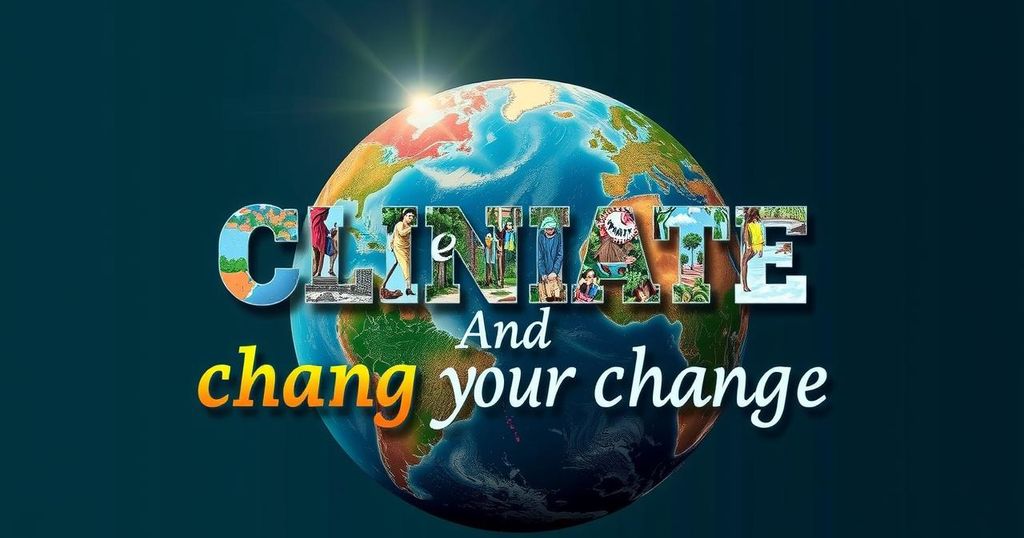Navigating Climate Change Despair: From Anxiety to Action
The article explores the rising despair regarding climate change among Millennials and Gen Z, highlighting a study revealing that 85% of young Americans experience anxiety related to the climate crisis. Experts advocate for collective action and political responsibility, emphasizing that meaningful change can still be achieved despite prevailing challenges. The piece showcases the importance of community engagement and personal involvement in addressing climate issues, ultimately fostering a hopeful perspective for future generations.
Amidst the growing despair regarding climate change, particularly among Millennials and younger generations, there exists a notable thread of hope articulated by experts. Julie France, a 34-year-old resident of Denver, exemplifies the consciousness many hold regarding this pressing issue. Her proactive lifestyle choices, driven by an understanding of climate change, reflect the sentiments of countless individuals of her generation who are grappling with the psychological ramifications of an uncertain future. Climate change has overshadowed the existential outlook of Millennials, leaving them feeling disillusioned and anxious. A recent study published in Lancet Planetary Health revealed that 85% of young Americans, ages 16 to 25, are experiencing increased anxiety and distress related to climate change. These feelings are so pervasive that they influence critical decisions, including family planning and living arrangements. The survey indicated that across political affiliations—96% of Democrats, 86% of independents, and even 74% of Republicans—there is a consensus on the necessity for greater governmental interventions to combat climate issues. Lead researcher Dr. Eric Lewandowski emphasized the shared experience of climate-related anxiety, stating, “if you are feeling anxious or concerned about climate change, you are not alone!” He also highlighted the urgent responsibility of adults and leaders to recognize and address the mental health struggles of the younger population. Experts remain optimistic that meaningful progress can still be achieved in mitigating climate change. Dr. Michael E. Mann, a distinguished climate scientist, posits that the barriers to climate action presently lie in the political realm rather than technical feasibility. “It is still possible to avert warming of 1.5º C or 2º C,” he reassured, underscoring the urgency of addressing political inertia. Dr. Peter Kalmus from NASA pointed out that the systemic issues, including disinformation campaigns from the fossil fuel sector, perpetuate this crisis by prioritizing profit over planetary health. However, he, along with other experts, encourages the youth to transcend their feelings of helplessness and engage actively in climate advocacy. Furthermore, Lewandowski advises young individuals to seek validation in their concerns, reminding them that sharing their experiences can foster community and mitigate feelings of isolation. Despite the daunting challenges posed by climate change, experts maintain that there is still a window for constructive action and collaboration, laying the foundation for a more sustainable future.
Climate change has emerged as one of the most significant global challenges of our time, engendering a sense of urgency and despair, particularly among the younger generations. This article discusses the emotional toll climate change exerts on Millennials and Gen Z, who are grappling with feelings of anxiety, anger, and hopelessness regarding their future in the face of environmental degradation. It examines the findings of a recent study that underscores the widespread mental health implications stemming from climate-related concerns and highlights the potential for collective action and hope amidst despair. The piece draws on insights from noted experts who emphasize the importance of political action, community engagement, and personal agency in tackling climate issues.
In conclusion, while climate change continues to invoke feelings of despair among younger generations, there remains a profound opportunity for hope and action. The collective experiences of anxiety and distress have united young individuals in their demand for political accountability and environmental justice. Experts affirm that with organized community efforts and the right political commitment, it is still feasible to avert catastrophic warming, thereby fostering a more sustainable future. Movements built on mutual support and informed decision-making can transform the narrative from one of despair to a proactive response to climate challenges.
Original Source: www.salon.com




Post Comment